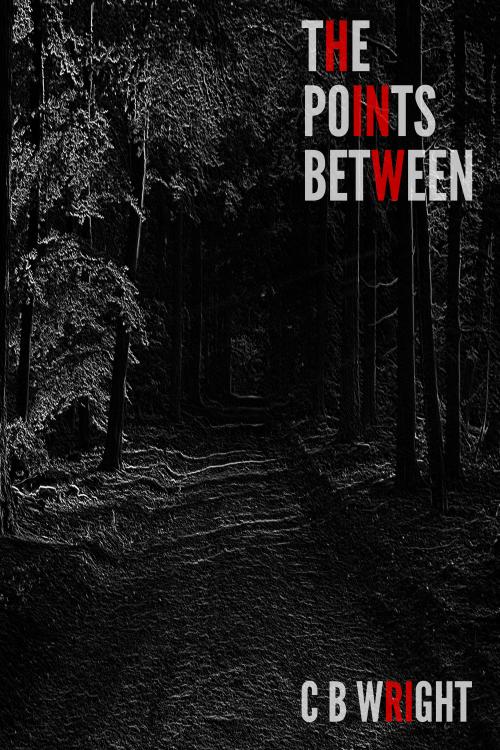
The Other Side
Matthew wakes up to the sensation of his new phone vibrating fiercely under his pillow. Still groggy with sleep, he gropes under his pillow, hits the power button once to stop the alarm, and drags it out to look at the time.
1:05 AM.
He sits up, unlocks the screen, and blinks a few times until he can focus on the signal strength. Two bars: not great, but it will be enough. He yawns, rubs his eyes, and fires off a quick email to Randy.
Randy—
I’m going exploring. Hope to get a painting out of it, at least. Don’t call the police this time, OK? I’ll be hard to reach. Don’t try.
– Matt
He hesitates for a moment, recognizing this as the first step that actually requires him to commit to this insanity. A part of him wants to ditch the whole plan and just leave, the way Frank Stackford wanted… and Sheriff Dobbs… and even Deke.
He sets his jaw and sends the message.
His jacket hangs over the back of a chair next to his bedside table. He reaches into the chest pocket, takes out a handwritten note, smooths it out, and places it on the table.
Buck—
I ran into a Mr. Franklin Stackford on Tuesday. He “strongly suggested” I leave town. I can’t say I appreciated the concern, but after thinking it over I decided it was a good idea… after a fashion. Don’t worry too much. I’m just looking for another beehive.
Thanks for putting me up. I hope you’ll let me keep my car in your driveway for a while, till I get back.
– Matt
P.S. if you run across Deke tell him I think there’s a fifth way.
He turns off his phone and sits it on top of the note like a paperweight. Then he turns on his bedside lamp, gets up, and quietly locks the door to his room. He has work to do.
He changes into a pair of swim trunks, then slips on a pair of rubber swimming shoes and a gray canvas fisherman’s vest. He pulls a roll of plastic sheeting out from under his bed, unrolls it so it covers half the floor, then starts arranging clothing on it: two pairs of jeans, four pairs of underwear, t-shirts, socks, and finally his jacket and boots. On top of the clothes, he adds two freezer-sized ziplock bags, two dozen food bars of various flavors, a first aid kit, a utility knife, and a small flashlight with a spare set of batteries.
Matthew grabs a pair of scissors and a roll of duct tape squirreled away in the bedside table drawer. Setting the duct tape aside, he quickly cuts the plastic sheeting at the roll, then folds and re-folds the sheet until the bundle is completely encased in plastic. Then he grabs the duct tape, and very carefully tapes every seam shut.
He reaches under the bed and pulls out a hiker’s backpack. Careful not to break any of the seams, he puts the bundle in the backpack, then closes it up and slips it over one shoulder. It feels surprisingly light. As quietly as he can manage, he turns off the bedside lamp, opens his bedroom door, and creeps down the hall, down the stairs, and through the house until he reaches the kitchen.
In the kitchen he removes his bag and retrieves a thermos from a side pouch. He fills it at the sink, keeping the water pressure low to minimize the noise, fidgeting impatiently the entire time. When he’s finished, he puts the thermos back in the side pouch, latches the pouch shut, and slips the backpack over both shoulders.
He stops at the back door, listening. The house is quiet. Very slowly he unlocks the door, careful not to rattle the chain as he takes it off its hook. It creaks softly as it opens, and creaks again as it closes behind him. He’s outside. It’s a warm, clear night, half moon shining brightly, illuminating the sky enough for Matthew to see a good distance across the river. He tightens the backpack straps, fastens the chest crosspiece in place, and walks to the dock.
It’s a pretty simple plan: the sheriff won’t let him cross the bridge, and Matthew doesn’t want to steal a boat, so the best way across is to swim.
He stands at the edge of the dock, gazing down into dark water. Buck’s boat sways slightly, pulled out from the dock by the current, mooring lines taut as they keep it from floating downstream. He sits, dipping his legs into the water. It’s cool but not cold—a welcome relief from the heat, he thinks, and slides in, careful to avoid the boat and keeping one hand on the edge of the pier to steady himself.
He drops in, the water coming up to just over his waist. The backpack fills with water, and as it starts to sag he hopes the plastic wrap is doing its job. He takes advantage of the shallow water to practice swimming along the shore, getting used to the weight on his back and the awkward way it shifts to one side or the other with each stroke. It’s annoying, but manageable, and the extra weight isn’t as restrictive as he feared it might be. He takes a minute to get his bearings, makes sure he’s pointing in the right direction, and begins to swim in earnest.
The backpack is a problem. It’s half-filled with water, and with each stroke it tries to shift on his back, either to the right or to the left. The straps grow looser the farther he swims, and occasionally he has to stop to re-tighten them.
Minutes pass. Matthew’s arms and legs begin to ache from exertion. He’s a fair swimmer, but this isn’t the same as swimming laps in a pool. He’s unused to the weight, his feet feel strange in the rubber shoes, his torso feels strange in the fishing vest. He wants to stop and rest, but he feels he has to keep moving or he’ll sink.
Five minutes into the swim, he’s exhausted. His arms and legs feel like lead weights, and the backpack presses down on his back like an anvil. He panics, imagining himself drowning in the middle of the river, his swollen, bloated body found the next morning lodged on a rock, or tangled in a fallen tree. He considers dropping his backpack in order to make the crossing easier, but he can’t bring himself to abandon his jacket to the water.
It takes a full ten minutes to reach the other side. He’s thankful for the rubber shoes then: the bank is littered with sharp rocks and twigs, and his hands are scratched and raw by the time he forces his way up to a clear patch of grass, where he collapses in utter exhaustion. He lies on the bank, gasping for breath in the warm summer air, unable to move, waiting for the numbness to leave his arms and his legs. He lies there for an hour at least, but he finally forces himself to sit, remove his backpack, and remove the plastic bundle to check the seams. The tape held, for the most part. There are places where the water caused the tape to bubble up and peel away, but the water hasn’t gone far into the plastic, and his things are still dry.
He unrolls the plastic, chooses a dry set of clothing, and changes into it. He feels a little better after that. He puts his wet trunks and rubber shoes in one of the ziplock bags, then puts the bag in the backpack. He stuffs the food bars, utility knife, and flashlight into various pockets in his fishing vest—the treated material is already beginning to dry—and rolls up the rest of the clothing in the plastic before returning it to the backpack.
Matthew feels exhaustion returning. The last vestiges of adrenaline are gone, and all he wants to do is collapse and sleep. But he can’t sleep here: he’s too close to the shore. When day breaks he’ll be visible from the other side. Wearily, he forces himself to his feet, shoulders his backpack, and stumbles off to find a more secluded spot.


4 comments
whelp, no way to claim accident, coincidence, or someone else did it :{
Nice chapter! No typos that I could find.
I do wonder why the backpack would feel like an anvil. Most of it’s content by weight is air, especially all the air trapped in the plastic wrap with the clothes.
The only things there heavier than water would be the utility knife, the flashlight and the spare set of batteries.
The boots too, perhaps, if they’re “steel toes”, but only if they filled with water. Since they’re in the wrap, they’d actually help trap even more air, making it more buoyant.
Granted, swimming with a backpack, even a buoyant one, would be no walk in the park: the drag and the mentioned balance shifting would greatly contribute to the exhaustion, but I don’t think it would drag him down or make him feel like drowning. It should be possible for Matt to stop swimming and allow himself be dragged by the current, though even here a buoyant backpack could be a hindrance by making it harder for him to float on his back. But he could just embrace it with his arms instead.
Speaking of being dragged by the current, if the river is flowing fast enough to keep the lines on the boat taught, it means Matt would be dragged downstream a significant distance if he’s swimming for 10 minutes. That’s unless he’s making an extra effort to reach for a specific spot on the other side, which would be hard to do in the dark.
I wasn’t thinking of the backpack actually weighing the same as an anvil, just that at that point Matt is exhausted, so it feels like one to him. It’s not actually any heavier than it was when he started across, and at that point the issue he has isn’t that it’s heavy.
I got what you’re saying from the text, in that what his feeling is a lot more an effect of exhaustion than the actual backpack weight.
It’s just the “presses down” in this sentence that gives the impression of the backpack pulling him underwater:
> His arms and legs feel like lead weights, and the backpack presses down on his back like an anvil.
But what’s more likely to happen is that the backpack would pull him up and drag him back (compared to his swimming direction).
Anyway, not a huge deal